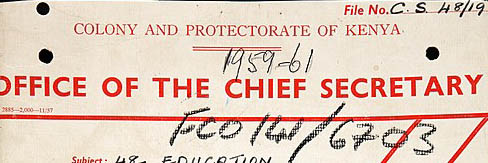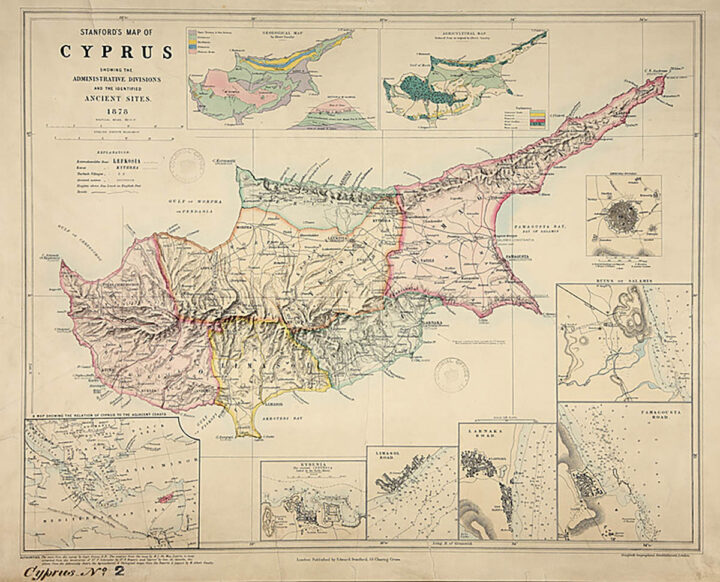
We have already undertaken a number of crucial key international partnerships.
- Working in partnership with a global archive community
- Developing archival knowledge sharing methods online
- Working to provide greater access to ‘shared archival heritage’
- Records informing restoration efforts
- New relationships and exchanging knowledge
- Archival research connecting international boundaries
- Protecting cultural heritage
Working in partnership with a global archive community: the ICA and FAN
For more than a decade, The National Archives has been a member of the International Council on Archives (ICA). As such, we have had the opportunity to work with and lead the Forum of National Archivists (FAN), a group within the ICA empowered by its Constitution to develop high-level strategic responses to the contemporary challenges facing archives across the world. Working closely with the ICA, FAN provides an opportunity for national archivists to share their diverse knowledge and expertise, for the benefit of archives worldwide.
We feel fortunate to have formed part of significant international conversations – from the impact of emerging technologies on archival practice now and in future, to the questions and opportunities arising in terms of access, collective knowledge systems and ethical responsibility for archives and their holdings.
During this time, there has been a significant rise in interest in how archives meet the needs of diverse people and communities today. People and nations seek greater access to records of all kinds to tell their stories, and we continually aspire to contribute to these international conversations via the ICA, FAN and other partners.
Our next international steps will include increasing how we engage with our international friends and partners, through the ICA and beyond.
Developing archival knowledge sharing methods online: the Arabian Gulf Digital Archive project
The Arabian Gulf Digital Archives (AGDA) is an online archive that has been created in partnership with the National Library and Archives (United Arab Emirates) to showcase historical and cultural material that tells the story of the history of the Gulf. AGDA presents digital material that spans two centuries, documenting events and personalities that have shaped and defined the region.
AGDA contains 500,000 images and documents relating to the region, a valuable resource for the UAE’s nation-building efforts in the Gulf as well as an invaluable aid for researchers interested in the region. The contents offer an insight into the past with some material previously unseen by the general public.
Our next steps include exploring future phases of the project.

Working to provide greater access to ‘shared archival heritage’: digitising FCO 141 records
Over the course of the last 5 years, The National Archives and the Forum of National Archivists (FAN) have been actively engaged with the international archive community to explore solutions to shared archival heritage, aligned to our strategic international ambitions. These conversations have taken many forms, including facilitating conversations led by the International Council on Archives’ Expert Group on Shared Archival Heritage.
The digitisation of this series will, once complete, run to more than 2 million images across 41 countries on six continents. In line with the ambitions of the International Council on Archives’ Africa Programme, we have begun this work with a focus on Africa – specifically records relating to Botswana, the Republic of Cameroon, Eswatini, Gambia, Kenya, Nigeria, and Sierra Leone. Overall, we anticipate approximately 800,000 images being created relating to the 15 African countries within the series. Given the global scale of the task, the overall project is expected to take between 5 and 10 years to complete.
While the digitisation will be undertaken by The National Archives, the work to make the digitised records available will be a collaboration with the national archives of the nations to which the records relate. We have begun discussions with colleagues in this first wave and look forward to further discussions as the programme develops.
This project is a practical demonstration of our commitment to connect with the biggest and most diverse audience possible in the most innovative ways we can. Over the last four years, we have worked hard to demonstrate why archives matter as vital assets for democracy and for future generations across the UK and around the world – collaboration has been at the heart of our approach.
Our next international steps include working in greater collaboration with the relevant nations and finding ways to make these records digitally available as resources and capacity allows.
Records informing restoration efforts: the Iraq RAF Cemetery
The Foreign, Commonwealth and Development Office (FCDO) approached us with an enquiry from the British Embassy in Iraq. The Embassy was trying to determine whether there was any agreement on ownership of the Ma’asker cemetery when RAF Al Raschid (previously known as RAF Hinaidi) was handed back to the Iraqis between about 1936 and 1944.
The cemetery contains approx. 300 UK citizens including a Consul General, women and children, and was in a dire condition. As part of a previous military base, it was assumed there may have been some form of land documents, or documents generated at the time of the handover of the base. They had already approached the Commonwealth War Graves Commission and the Air Historical Branch.
Our Heads of Modern Collections and Military Records located the final handing over certificate in a Foreign Office file (FO 624/10), which stated: ‘it is agreed that the British cemetery is under the control of the Imperial War Graves Commission’. The Defence Attaché in Baghdad confirmed that the document allowed him to establish that there was an agreement for further maintenance of the cemetery after hand over to the Iraqis by the war graves commission. He put this to the relevant authorities.
We later received a kind note of thanks along with an update. Thanks to the research we undertook and the information contained in one of our documents, the restoration of the wall around the cemetery was set to begin. This is a great example of how historical records held at The National Archives can have a very tangible impact on people’s lives, and positively inform policy, both in the UK and overseas.

New relationships and exchanging knowledge: Cyprus
We received an invitation to attend a First World War event at the High Commission of the Republic of Cyprus. There, colleagues from our Collections Engagement and Expertise teams met with the High Commissioner, the Political Counsellor, and the Cultural Attaché, who later visited The National Archives to view documents relating to Cyprus. While we as an organisation are fortunate to receive invites for significant occasions, this invitation led to development of a greater (and ongoing) working relationship and knowledge exchange with new audiences.
A year later, alongside colleagues at the High Commission and the Bank of Cyprus Cultural Foundation, colleagues took the opportunity to organise an event at The National Archives site: ‘An unintentional colonial gift: Kitchener and the Survey of Cyprus’. Attended by more than 100 people, the event combined a lecture by Professor Maria Iacovou, of the University of Cyprus, a document display gathering material held at The National Archives and at the Bank of Cyprus Cultural Foundation, and a Cypriot reception.
Colleagues then travelled to Cyprus to deliver a lecture on ‘Cyprus in the War and the War in Cyprus’, as well as archival skills workshops. They also met with colleagues in various cultural institutions and were invited to deliver the keynote lecture (‘Excavating in Cyprus, and in the archives’) at a conference organised by the British Museum and the Cyprus American Archaeological Institute on ‘Excavations and the Empire’.
All these events were the starting point of an enduring relationship and demonstrated that shared documentary heritage can be at the basis of a solid dialogue between two nations with their own perspectives of history and historical events.
Archival research connecting international boundaries: working with the IBRU
The National Archives holds one of the largest collections of maps in the world, and a wealth of material relating to international boundaries, because of Britain’s colonial past, but also because of strategic concerns. Our records cite that Britain was called upon as an ‘impartial observer’, and/or because of the country’s experience of geographical surveys.
We have regularly formed a part of the ‘Evidence and Archive Research in Boundary Dispute Resolution’ training workshop led by the International Boundaries Research Unit (IBRU, University of Durham). This ongoing workshop series, led by IBRU and The National Archives, is designed to help participants appreciate how archive material can be used to help build a case, and to provide practical guidance on how to make the best possible use of time available for archive research.
The latest workshop was held at The National Archives, in collaboration with the Royal Geographical Society on 1 June 2023.
Protecting cultural heritage: a Digital Safe Haven for Ukraine
Less than a week after Russia invaded Ukraine, the Digital Preservation Coalition (DPC) issued a call to action, stating that ‘every step should be taken to preserve the record.’
Our Digital Director responded to offer our practical support. Via our contacts at the DPC, we said, ‘The National Archives can extend the offer to holding (backing up) digital copies of your digital records, for as long as needed by Central State Electronic Archive of Ukraine… [We set] no limit on the volume of data – we will store whatever you need/can send or supply.’ Dr Yurii Kovtaniuk, Director of the State Electronic Archive of Ukraine, accepted our offer, and we set about getting the preparations in place.
We agreed to take digital records held by 42 archival and cultural institutions in Ukraine. The task was to provide a ‘quick and easily accessible storage solution for data coming from the Ukraine Archives.’ We had very limited understanding of the situation on the ground and didn’t know what challenges the Ukrainian archivists might be facing. We had to make the service as fast and easy to use as possible.
The Digital Safe Haven service was built over a long weekend using globally accessible cloud infrastructure which offers good support for security and versioning. We created an account for each of the 42 institutions. A loan agreement was drawn up, with a signing ceremony attended by the Keeper, the Chief Archivist of Ukraine, and the President of the International Council on Archives.
The conflict in Ukraine sadly presses on and so do our efforts to support colleagues there. So far, we have taken 153 Terabytes across 27 million digital files into our Digital Safe Haven and material is still coming in. We are committed to looking after as much as we are sent, which we will hold in trust for the Ukrainian people for as long as the conflict continues. We are proud to be able to use our expertise and resources to help other nations protect their cultural heritage.